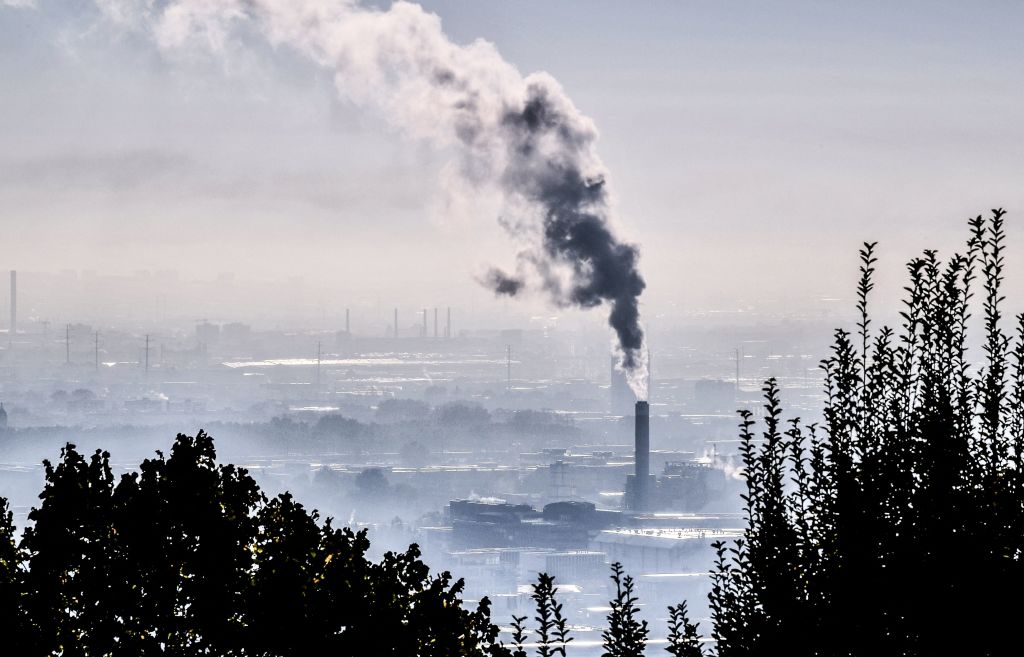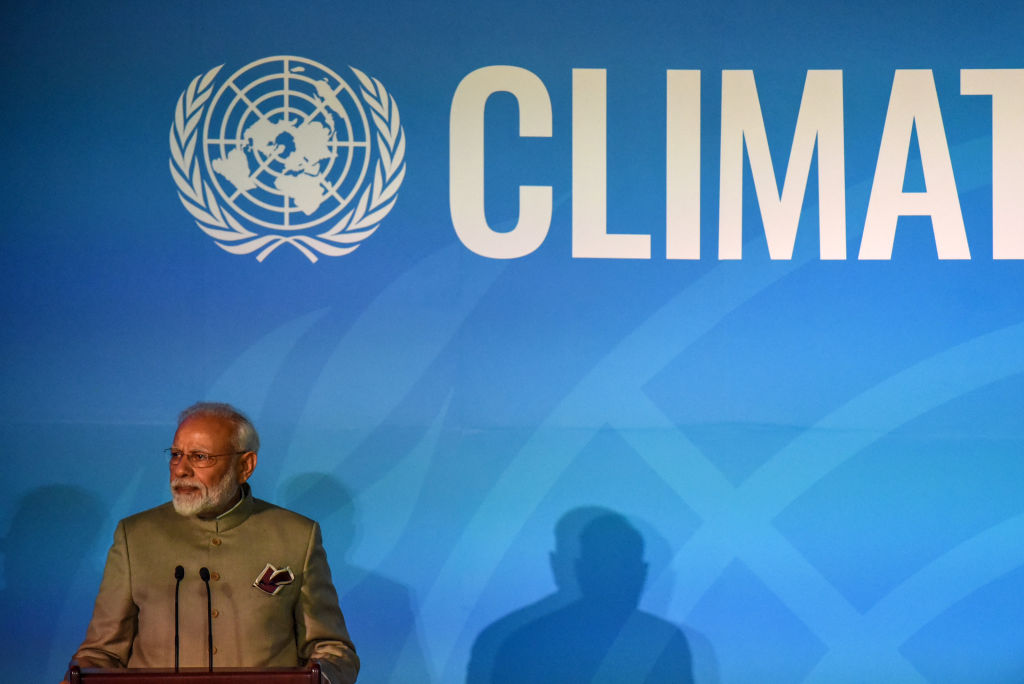- Saturday, April 26, 2025

By: Shubham Ghosh
AS the planet gears up for the crucial climate summit in Glasgow, Scotland, starting on Sunday (31), India has cautioned at the United Nations (UN) that the conference should not be just “promises and pledges” and the world needs fast and deep emission reduction in the current decade and not distant targets. The summit, formally called UN Climate Change Conference or COP26, will be held till November 12.
“Science has time and again clearly stated the urgency of accelerated climate action. Recent incidents of extreme weather events across the world corroborate what science is telling us,” India’s minister of environment, forest and climate change Bhupender Yadav said.
He was speaking at a high-level meeting ‘Delivering Climate Action – for People, Planet & Prosperity’’ convened by the president of the 76th session of the UN General Assembly, Abdulla Shahid, on Tuesday (26).
“However, the current discourse on climate ambition seems to be shifting the goalposts,” he said.

“The trust and confidence of the world in the UN processes and forums must be safeguarded by all. Let COP26 be a COP of actions in finance and technology support and not just promises and pledges,” the Indian minister added.
“Combating climate change is a shared global challenge. The global climate action must be guided by the principles and values of climate justice, equity, and common but differentiated responsibilities in the light of national circumstances, as enshrined in the UN Framework Convention and its Paris Agreement,” Yadav said.
He also emphasised that “it is already late” and stressed that it is time for all to take accelerated action on climate change.
Meanwhile, the Indian High Commission in London informed India Weekly about various actions that India has initiated with regard to climate.
“India has been at the forefront of recognizing and taking action against climate change. This is driven not just by a realization of the adverse impact of climate change on developing countries like India, but also stems from a civilizational ethos of living in harmony with nature,” it said.
It said India’s commitment to climate-related action is inspired by the vision of prime minister Narendra Modi. It said that Modi had emphasised at the Climate Adaptation Summit in January this year that India will not only arrest environmental degradation but reverse it and not just create new capacities but make them agents for global good.

The high commission said that in his Independence Day speech this year, Modi said that environmental security is being seen as important as national security. It said India today is a vibrant voice on matters of environmental security – be it biodiversity or land degradation neutrality or tackling climate change or recycling waste or energy conservation, etc. It also cited Modi as emphasising on Mission Circular Economy.
The high commission said India has set ambitious Nationally Determined Contribution (NDC) goals for the post-2020 period under the Paris Agreement, which are two-degree Celsius compatible.
“These include a reduction in emissions intensity of its GDP by 33 to 35 per cent by 2030 from 2005 level, as well as achieving 40 per cent cumulative electric power installed capacity from non-fossil fuel-based energy resources by 2030, with the help of transfer of technology and low cost international finance, including from Green Climate Fund. India is on track to achieve these targets and is clearly the best performer among the G-20 countries on climate action. As per the Climate Change Performance Index 2021, India is among the top 10 performers in the world,” it added.
It also cited examples of India’s environment-friendly policies that include: pursuing a target of 450 GW if installed renewable energy capacity by 2030; pioneering the International Solar Alliance for which Modi was awarded the Champions of the Earth Award 2018 – the UN’s highest environmental honour; implementing a comprehensive National Action Plan on Climate Change across various ministries of the government; focusing on water conservation through initiatives like the National Water Mission and the Namami Gange river rejuvenation project; encouraging e-mobility and zero-emission vehicles and go-electric campaign; launching a voluntary vehicle-scrapping policy; leapfrogging from Bharat Stage-IV to Bharat Stage-VI vehicle emission norms; making the Indian Railways commit to net zero emissions targets by 2030 to make it the world’s first ‘Green Railways’ and targeting complete electrification of broad-gauge route by 2023; launching a National Hydrogen Energy Mission which aims to make India a global hub for the production and export of green hydrogen, etc.
India has also put forth eight goals in its NDC, some of which are: To adopt a climate friendly and a cleaner path than the one followed hitherto by others at corresponding level of economic development; to create an additional carbon sink of 2.5 to 3 billion tons of CO2 equivalent through additional forest and tree cover by 2030; to adapt to climate change by enhancing investments in development programmes in sectors vulnerable to climate change, particularly agriculture, water resources, Himalayan region, coastal regions, etc.